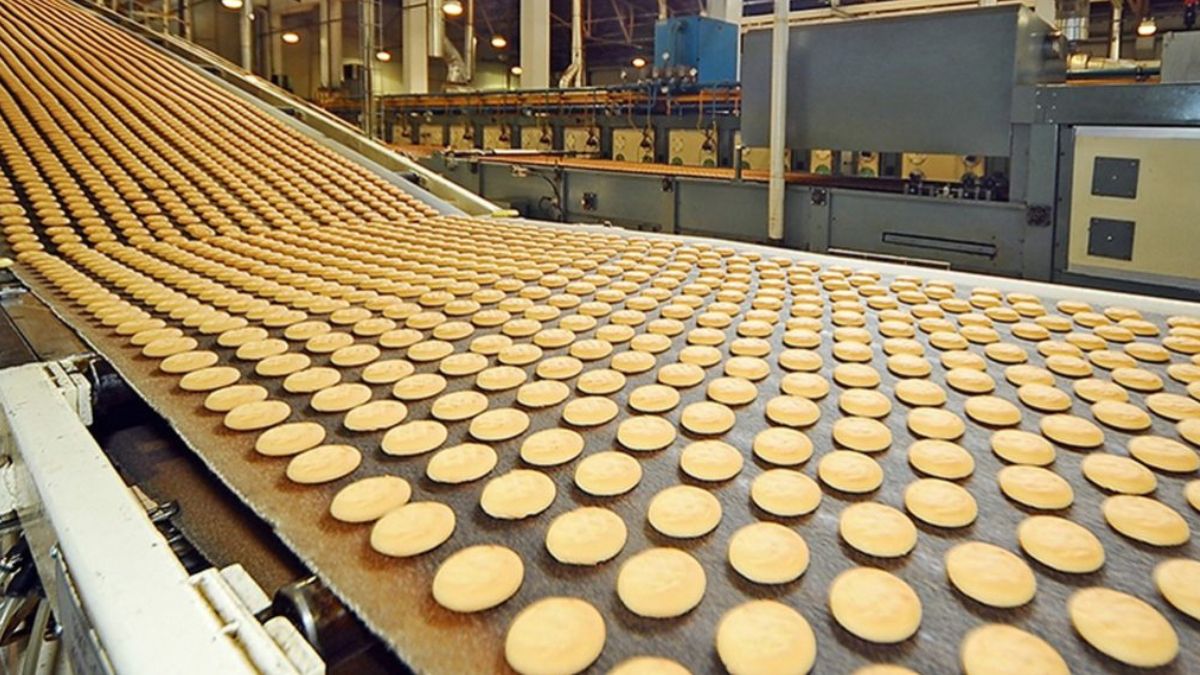The food processing industry in Pakistan is one of the country’s fastest-growing and most vital manufacturing sectors. As of 2025, the sector is witnessing significant advancements in technology, export performance, and product diversification. This article explores the sector’s growth trends, challenges, key players, and investment opportunities.
Industry Overview
The food and beverage processing industry is the second-largest manufacturing sector in Pakistan after textiles. It contributes nearly 27% to value-added production and employs about 16% of the total industrial workforce. The market is valued at approximately $1.4 billion and is growing at a compound annual rate of 10%.
Read More: Best Candies in Pakistan 2025: Top Local & Imported Brands Loved by All Ages
Key Segments and Market Drivers
Major Segments
- Frozen Foods: Rapidly growing due to urbanization and lifestyle changes. Market expected to reach $1.03 billion by 2032.
- Processed Dairy: Pakistan is the 4th largest global milk producer with vast scope for UHT milk and cheese processing.
- Value-Added Crops: Includes cereals, snacks, and oils. Edible oil processing remains underdeveloped.
- Beverages: Includes juices, syrups, and carbonated drinks. Dominated by global giants.
Growth Drivers
- Urban population and middle-class expansion
- Expansion of e-commerce and modern retail chains
- Development of cold-chain and logistics infrastructure
- Government incentives and SEZs under CPEC
Export Performance
Pakistan’s food exports reached $5.75 billion in July–March FY 2024–25, with a 1.6% year-on-year increase. The country has maintained 20 consecutive months of export growth, driven by basmati rice, dairy products, processed foods, and beverages.
Challenges in the Industry
Despite growth, the industry faces several structural challenges:
- Cold Chain Deficiency: Up to 40% of fruits and vegetables are wasted due to lack of storage and transport.
- Inconsistent Raw Material Supply: Quality and safety standards are often not met due to informal sector dominance.
- Infrastructure Limitations: Unreliable power supply and underdeveloped logistics.
- Climate Risks: Crop yields fluctuate due to erratic weather patterns.
- Lack of Certification and Financing: Many SMEs struggle to meet ISO/SPS standards or access affordable financing.
Key Industry Players
| Category | Major Companies |
|---|---|
| Multinational | Nestlé Pakistan, Unilever, PepsiCo, Coca-Cola |
| Local Corporates | Fauji Foods, Dawn Foods, K&N’s, Mitchell’s |
| SMEs/Private | Shezan, Tripple EM, Euro Foods, GFI |
These players operate across various segments including dairy, beverages, frozen meals, cereals, and condiments.
Government Support and Policy Framework
The Government of Pakistan is actively supporting food processing through:
- NAFSA (National Agri-trade & Food Safety Authority): Regulates food quality and certification.
- PHDEC: Focuses on horticulture development and export support.
- Special Economic Zones (SEZs): Rashakai, Bostan, and Faisalabad are being developed to host agro-processing industries.
Read More: Electric Tandoor in Pakistan: Making Cooking Easier
Investment Opportunities
The food processing sector offers a wide range of investment prospects:
| Area | Opportunity Description |
|---|---|
| Cold Chain Development | Cold storage, refrigerated transport, and warehouse investments |
| Processed Dairy | UHT milk, yogurt, cheese production facilities |
| Value-Added Fruits & Veg | Canning, purees, frozen cuts, and juices |
| Quality & Certification | Labs for ISO/SPS compliance, quality control, packaging technology |
| Agritech & Automation | Food processing machinery, AI/IoT integration for traceability |
Outlook for 2025 and Beyond
Pakistan’s food processing sector is poised for consistent double-digit growth, particularly in export-driven segments and urban consumer products. However, progress depends on addressing core bottlenecks like cold-chain logistics, financing, and food safety compliance.
Conclusion
The food processing industry in Pakistan presents a compelling opportunity for investors, exporters, and entrepreneurs. With a growing consumer base, government support, and untapped agricultural potential, the sector is on track for robust growth through 2025 and beyond. Strategic investments in infrastructure, certification, and innovation will be key to unlocking the full value of this vital industry.Keep visiting: Bloom Pakistan
Read More: Molasses Price in Pakistan Today 2025: Current Rates, Uses & Buying Guide









